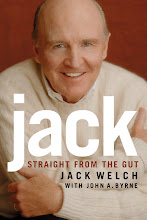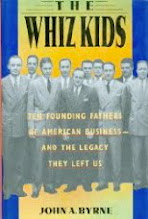One of the most surprising stats to come out of the new Pew Research Center study released earlier this week is that 65% of online news consumers say they don't have a single favorite website for news. That number inevitably brings you to one of two conclusions: 1) The web is still a wide open marketplace for new content startups because there are precious few dominant players in the space, or 2) Digital news consumers are far more likely to be promiscuous when it comes to the news. Because the web makes it so easy to sample many media sites (and they are largely free), it's far more likely for people not to have a single favorite website for news. Indeed, the study also showed that only seven percent of Americans get their news from a single source and that 46% of Americans get their news from four to six media platforms on a typical day.
That sounds about right to me. At BusinessWeek, we once asked McKinsey and Co. to study our web users and found to our surprise and chagrin that our brand users were remarkably promiscuous. On average, they visited 18 different media brands--TV networks, newspapers, magazines, and websites--a week to satisfy their news appetites. At first, we thought this was a shocking number, showing little loyalty to our brand. On reflection, however, we came to realize that many of the readers of BusinessWeek are news junkies. They devour information and analysis, and it's obvious that they would seek news from lots of sources on a regular basis. At the time, BusinessWeek was not a news site to be depended on for the most important breaking news, but rather an analysis and insight website, picking and choosing the issues on which to opine and dig deeper. But I digress.
I think the fact that 65% of Americans don't have a single favorite website means both 1 and 2, not either or. This finding tells me there is still plenty of room on the web for new, smart ways to make the news more participatory, personal, and social. New web entrepreneurs who adopt disruptive technologies and business models are likely to prosper. And because of the overwhelming wealth of information on the web, it's unlikely that people might have a "single favorite website" for news. To my way of thinking, that's a good thing, assuring that readers get a wide diversity of opinions and ideas from a wide variety of brands.
A few other fascinating results from the Pew study: Our relationship to news is becoming "portable, personalized, and participatory." Some 33% of cell phone owners now access news on their cell phones; about 28% of people on the internet have customized their home page to include news from sources on topics that interest them, and some 37% of internet users have contributed to the creation of news, commented about it, or disseminated it via postings on social media sites from Facebook to Twitter.
Concludes Pew: "To a great extent, people's experience of news, especially on the internet, is becoming a shared social experience as people swap links in emails, post news stories on their social networking site feeds, highlight news stories in their Tweets, and haggle over the meaning of events in discussion threads. More than eight in ten online news consumers get or share links in emails."
I suspect these numbers will dramatically increase in the near future as news becomes even more of a social activity. The old rule of thumb that only 10% of Internet users are pro-active and only 10% of them participate by writing comments on stories is just that: old. Increasingly, as this Pew study clearly shows, more and more people are contributing to news. It has become a "shared social experience." It's why I believe deep and meaningful engagement with your audience is an essential ingredient for a news organization.
What do you think?
Donkey Show, the novel
-
My new novel, Donkey Show, is out in trade paperback. The digital version
will come next month, with the official launch.
The idea for the novel came ba...
3 years ago












